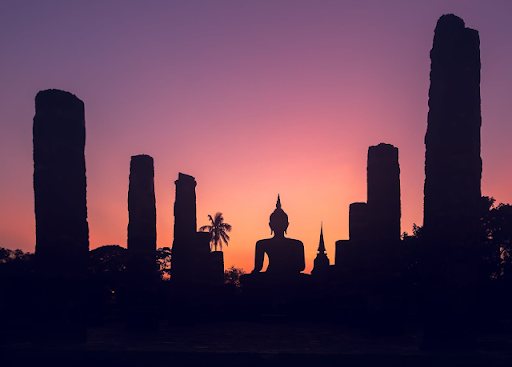If You'll Be Partying and Drinking New Year's Eve Consider This...
Buddhism doesn’t have just one thing to say about consuming alcohol and other intoxicants. In time for party season, we look at the surprising diversity of Buddhist views.
Just a Little
A little beer or wine is okay, says Sozan Miglioli, as long as you remain mindful of yourself and others.
In Zen, we try to understand the spirit of the five precepts rather than just the words. The precepts are guides toward the cessation of suffering, not strict or prescriptive admonitions. They are there to open our eyes, to help us see clearly what creates unwholesome karma.
A definition of enlightenment is “to see reality as it is.” For this reason, the precept “I vow not to intoxicate the mind or body of self or others” is very important. It asks us to keep our eyes open, our awareness alive, to what creates suffering in this world. It directly addresses the issue of not seeing things clearly and can guide us on our path of awakening in many different ways.
Being mindful of the effect of our actions is key.
Certain traditions also add a positive side, so the precept can be followed from a perspective of abundance, such as “I vow not to intoxicate the mind or body of self or others, but to promote clarity and awareness.” When approaching the precept this way, we include both what fosters difficulty as well as a clear path to taking positive action.
The fifth precept tells us that we shouldn’t compromise our clearmindedness to the point where our moral judgments are hampered. And it doesn’t stop there, because it also asks us not to become a vehicle for others to do so. This is important because while people might remain aware of the ways in which they get intoxicated, they often pay little attention to how they can intoxicate other people’s minds and bodies. Whether its a substance or a word, we should be aware of what we take in and what we offer others.
So as long as a person is not entering a space of clouding body or mind, social drinking or having a glass of wine or a beer can be okay. Of course, if you are in recovery or underage, this is definitely not the case. This is why most traditions who believe in the middle way of using intoxicants don’t just say that it is alright to drink moderately, because that means a different thing to different people. We must also be very aware of the ways in which circumstances change. Maybe you are more tired today, or maybe you have an empty stomach. The meaning of “drinking moderately” changes from one moment to another.
One of the ways to understand one’s relationship to this precept has to do with the intention. Asking yourself why you want to have a glass of wine, or binge-watch a TV show, opens up the possibility of understanding of how you could actually be misusing the substance or the show. Bringing awareness to the “why” is a way to engage with the precept in a healthy way, because there is no good excuse to cloud your judgment, not even a celebration.
Being mindful of the effect of our actions is key. We should stay in touch with our mindfulness every time we drink, watch TV, or engage in social media, because sometimes we can get distracted or distanced from ourselves and before we know it we have had that extra beer or seen that extra episode that tips the balance. Mindfulness ensures that we connect with the fifth precept in a way that is not strict, and at the same time, not naive.
Drink in Wisdom
It’s challenging to relax our fixed views, says Judy Lief. Drinking within a sacred context can help.
From ancient times alcohol has been used as a component of religious rituals. In some Hindu and Buddhist traditions alcohol is called amrita, “no-death,” the elixir of immortality. In the West, alcohol is sometimes called “the water of life.” Sacred rituals such as the Jewish seder and the Christian communion service include wine in the liturgy.
Yet many other spiritual traditions and religious communities teach abstinence from alcohol. We humans are clearly conflicted about how to deal with this powerful substance. Is it a blessing or a curse?
Mental and emotional rigidity are hard to change.
The practice of Vajrayana or tantric Buddhism is about transmutation. It is about changing poison into medicine, finding the sacred within the profane, the sanity within neurosis, the blessing within the curse. It is a form of alchemy. But instead of transforming lead into gold, you are transforming confusion into wisdom, and you can use substances like meat and alcohol as a means of doing so.
Continue reading BELOW the FOLD


Comments
Post a Comment
RN USA no longer accepts comments. The information presented is for reflection, contemplation, and for those seeking greater understanding and wisdom. It is for seekers and those with an open mind and heart.
Namaste